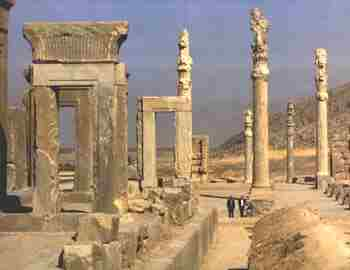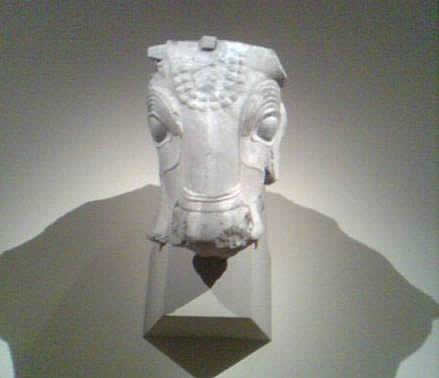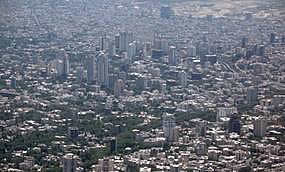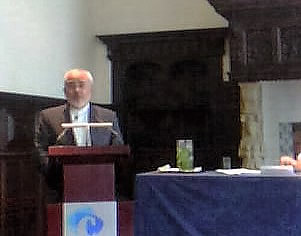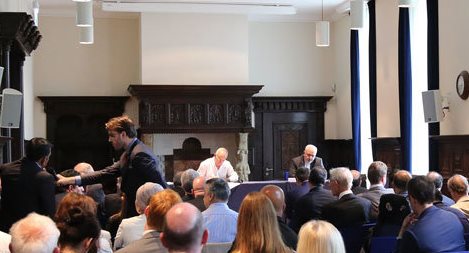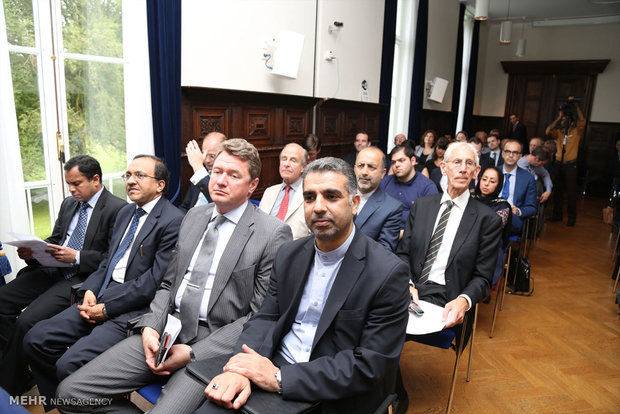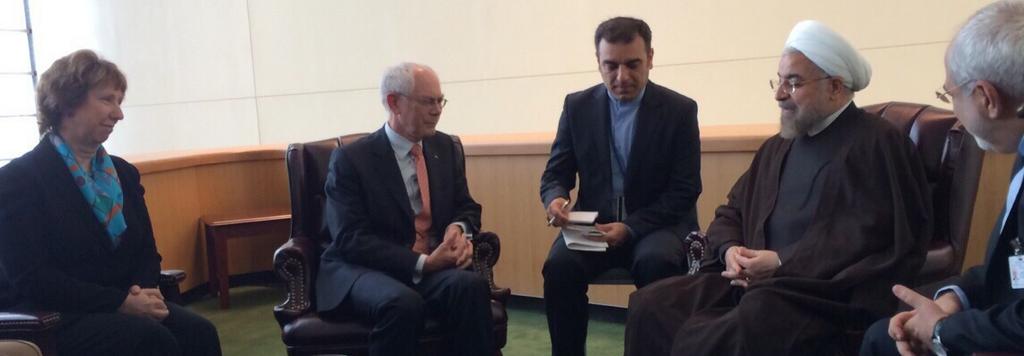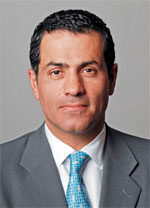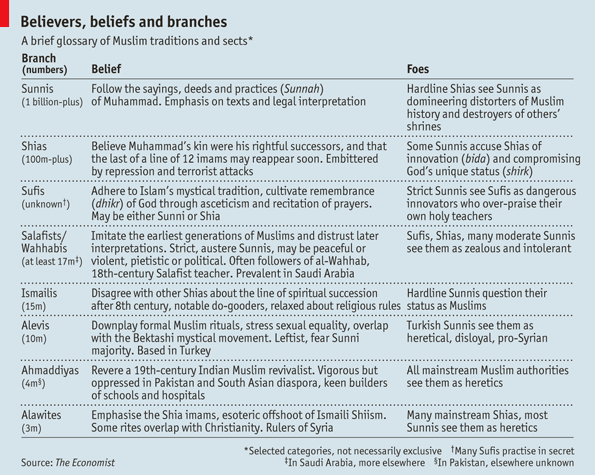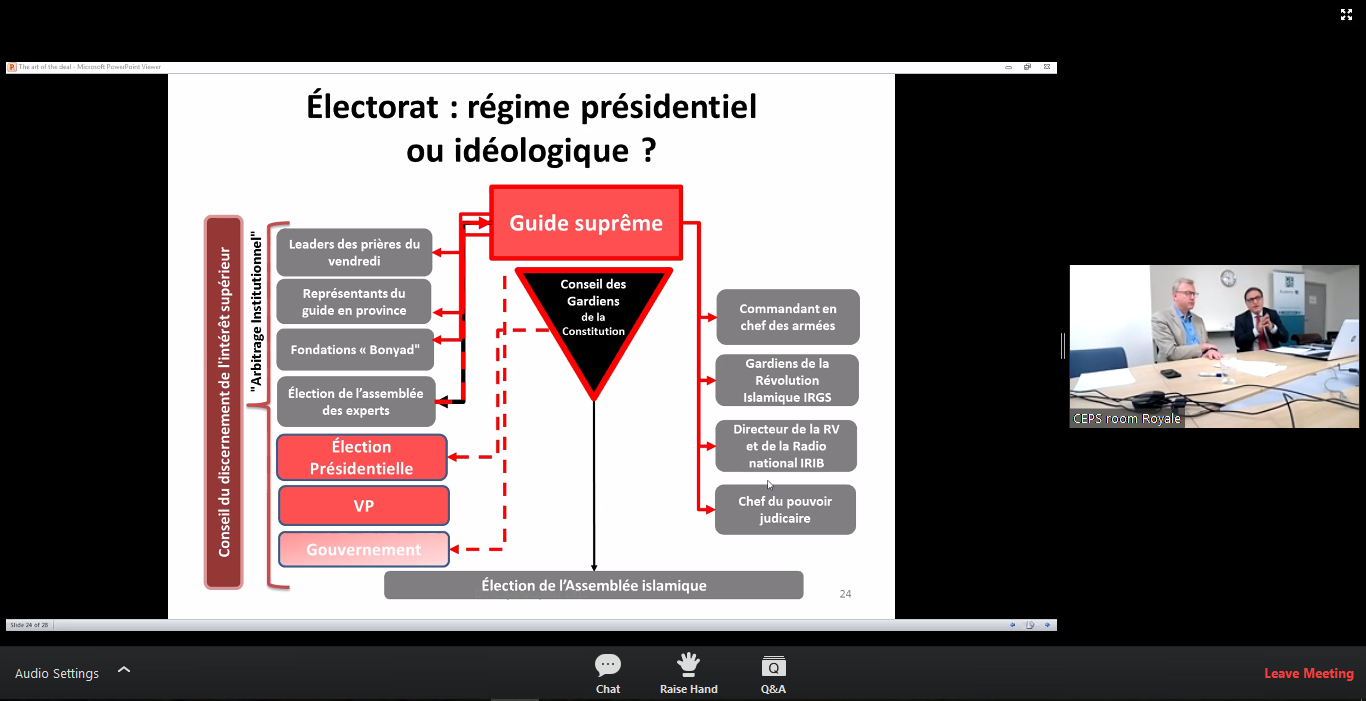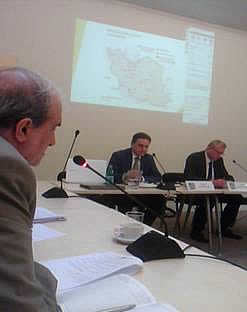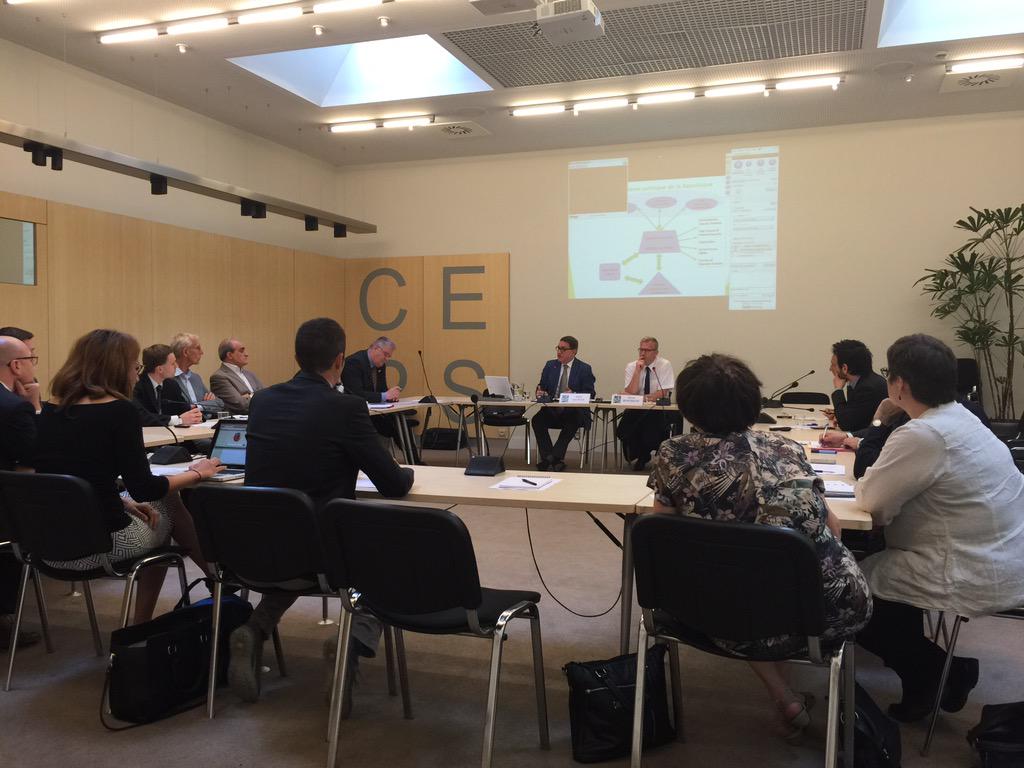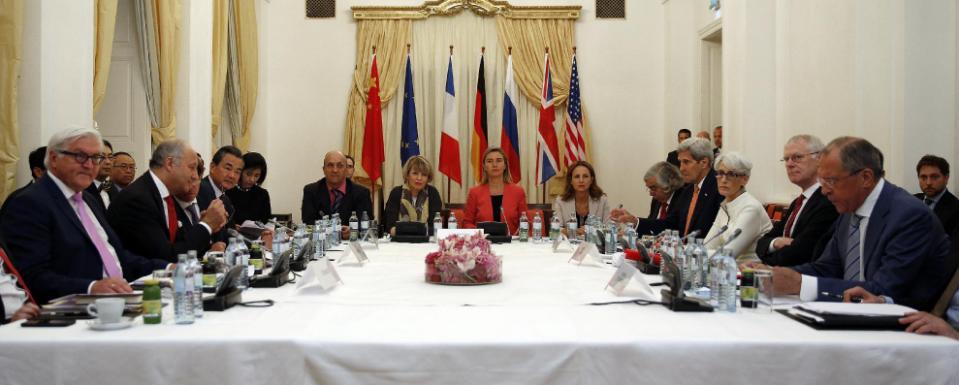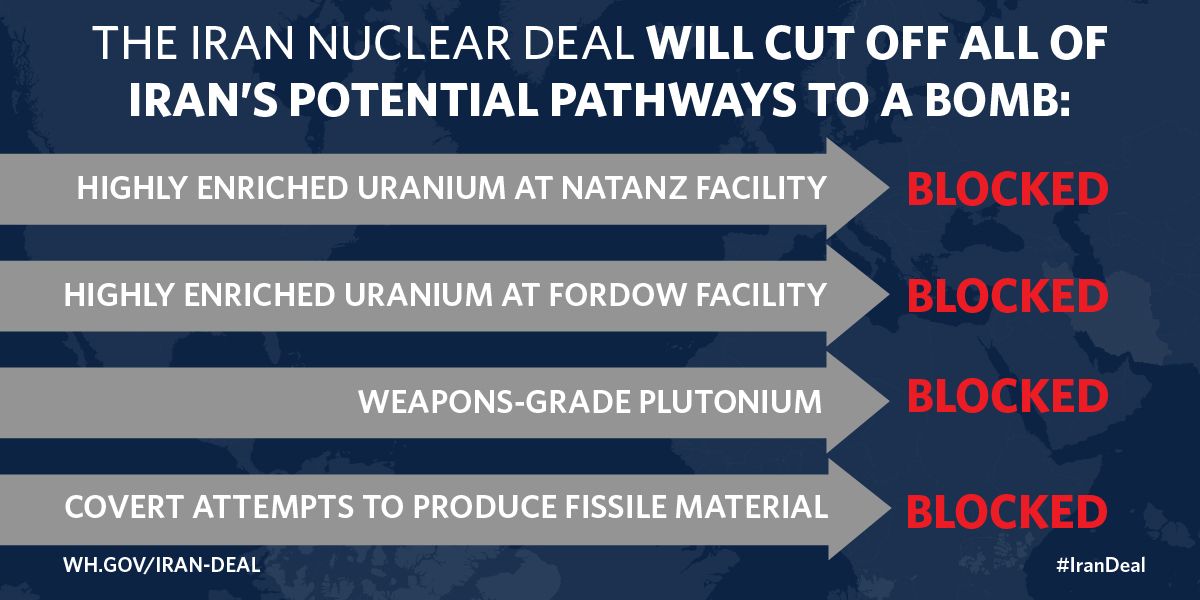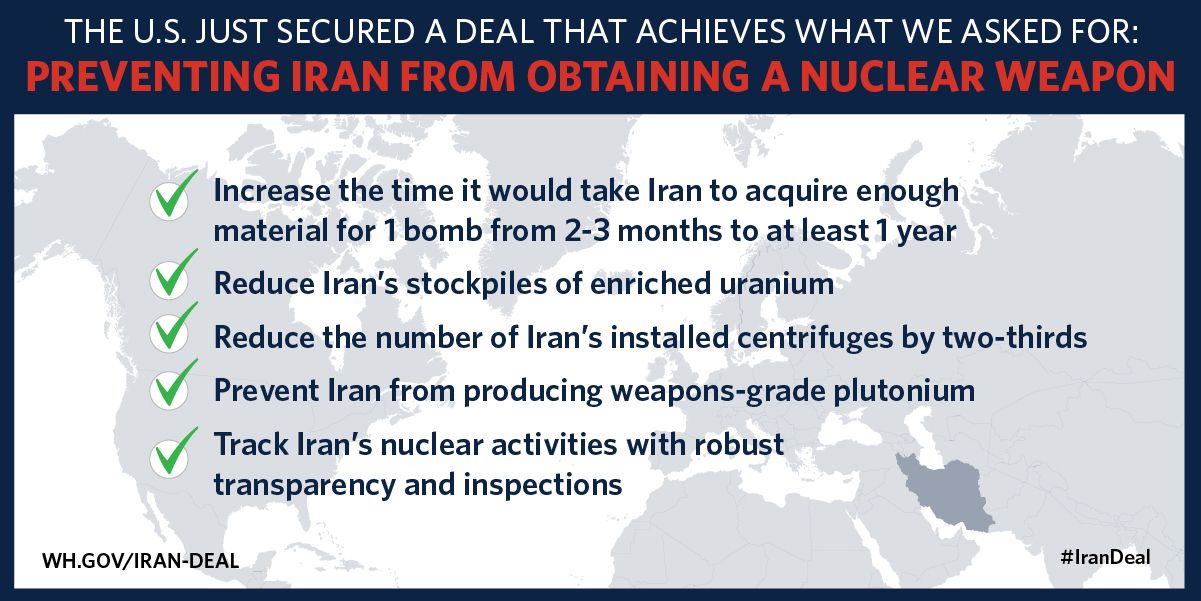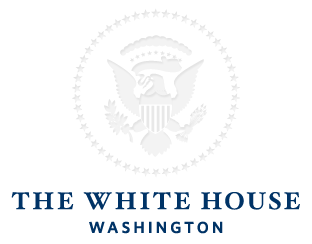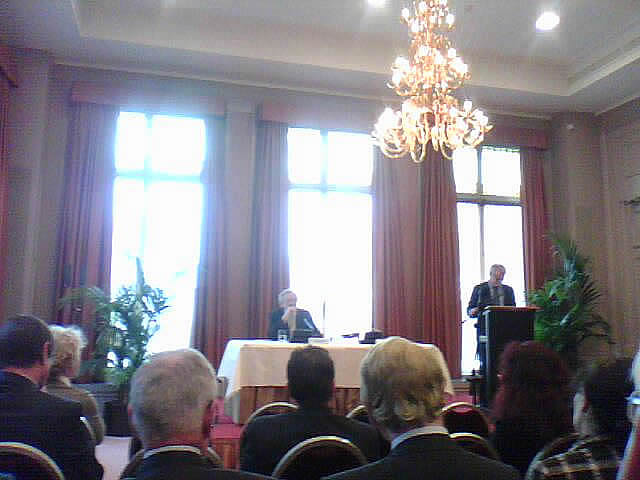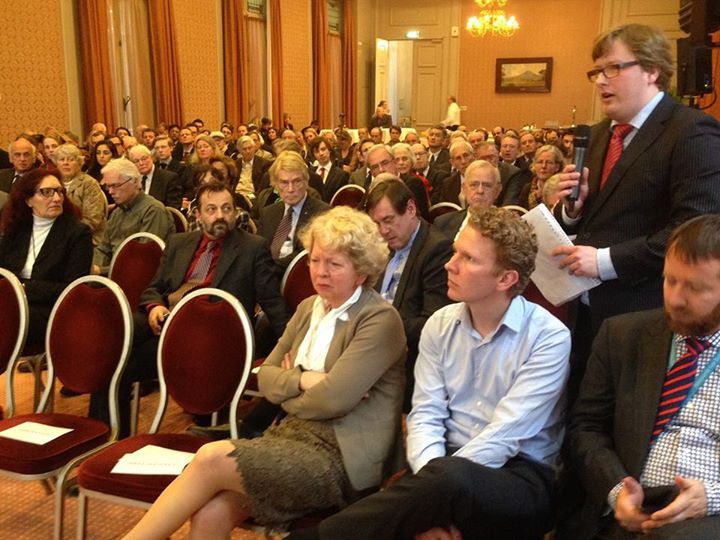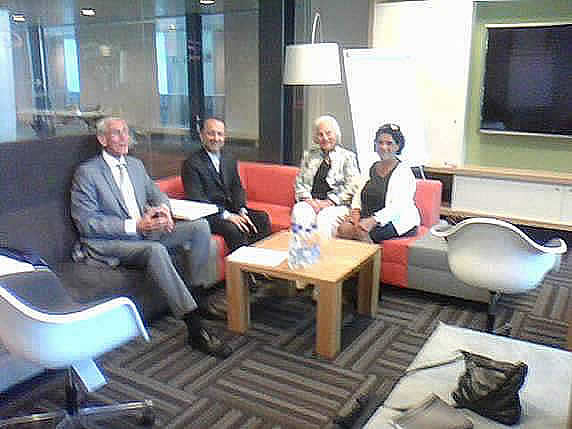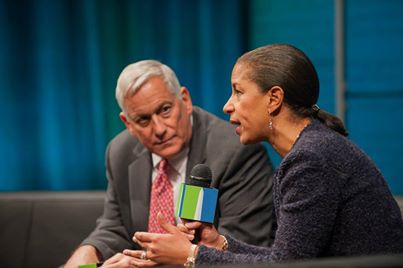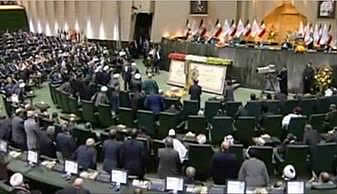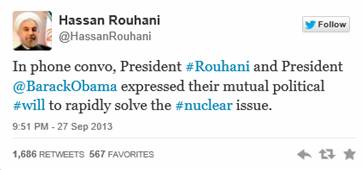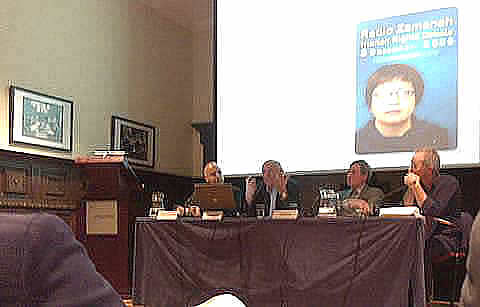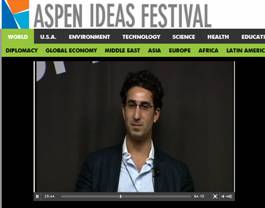Diplomats involved in the talks have spent 18 months in broader negotiations that had to be extended twice due to an inability to bridge wide gaps in positions since they reached an interim accord in November 2013. After marathon talks in Lausanne, Iran agreed on limits on its program on uranium and plutonium development — two means of building a nuclear bomb. It also agreed to accept international inspections on its nuclear facilitates.
The United States, Iran and five other world powers have sealed a breakthrough framework agreement outlining limits on Iran's nuclear programme to keep it from being able to produce atomic weapons. Reading out a joint statement on Thursday evening, EU foreign policy chief Federica Mogherini said a "decisive step" has been achieved.
"This is a crucial decision laying the agreed basis for the final text of joint comprehensive plan of action. We can now start drafting the text and annexes," said Mogherini, who has acted as a coordinator for the six powers - Britain, China, France, Germany, Russia and the United States.
The US and Iran each hailed the efforts of their diplomats over eight days of marathon talks in Swiss city of Lausanne. Speaking at the White House, US President Barack Obama called it a "good deal" that would address concerns about Iran's nuclear ambitions. The US president said that the US and its allies had "reached a historic understanding with Iran". Iranian Foreign Minister Mohammad Javad Zarif called it a "win-win outcome".
The Islamic Republic has been promised an end to years of crippling economic sanctions, but only if negotiators transform the plan into a comprehensive pact by June 30.
'Solid foundation'
US Secretary of State John Kerry said the agreement in Lausanne was a "solid foundation for a good deal". Al Jazeera's James Bays, reporting from Lausanne, said that US diplomats still faced the challenge of convincing opposition Republican dissenters in Congress, and its strongest ally, Israel, that the deal was sufficient. "There are a lot of places where this deal will not be accepted and one of those is Israel," Bays said.
Obama said his security officials would be working with Israel and Arab states, including Saudi Arabia, to make sure their concerns are addressed. Israel voiced its "strong opposition" to the deal. In a phone conversation with Obama, Prime Minister Benjamin Netanyahu said a final deal based on this agreement "would threaten the survival of Israel". House Speaker John Boehner said it would be "naive to suggest the Iranian regime will not continue to use its nuclear programme, and any economic relief, to further destabilize the region." But Obama said that the issues at stake are "bigger than politics". "These are matters of war and peace," he said, and if Congress kills the agreement "international unity will collapse, and the path to conflict will widen. The deal will limit Iran's nuclear activity to the Natanz plant and reduce the number of centrifuges it operates from 19,000 today to just over 6,104. Iran has also agreed to not build any new facilities for the purpose of enriching uranium for 15 years.
Zarif said the countries had agreed an elaborate mechanism if any of the parties to the agreement "returned to old practices" and reneged on their obligations. "We will not allow excuses that will allow a return to the old system," Zarif said.
Mogherini said the seven nations would now start writing the text of a final accord. She cited several agreed-upon restrictions on Iran's enrichment of material that can be used either for energy production or in nuclear warheads. She said Iran will not produce weapons-grade plutonium. Sanctions related to Iran's nuclear programmes would be suspended by the US, the United Nations and the European Union after the International Atomic Energy Agency confirmed Iran's compliance.
Source: Al Jazeera and agencies.
IRAN’S NEIGHBOURS AND A NUCLEAR DEAL
ECFR published in December 2014 the following notes: 'The outcome of talks on Iran’s nuclear programme and the continuing conflict in Syria remain major stumbling blocks to improving Tehran’s relationship with its regional neighbours. The centrepiece of the Rouhani presidency has been attempts to reach a deal with the E3+3 countries (Germany, France, UK, Russia, US and China) on Iran’s nuclear programme. A resolution of the nuclear standoff and the dismantling of sanctions would be a victory for President Rouhani. However the prospect of a less isolated Iran may not be welcomed by hardliners in Riyadh or Jerusalem and reshaping Iran’s relationship with these and other neighbours will be a key challenge for Tehran.
The E3+3 and Iran have managed to insulate nuclear negotiations from the conflict in Syria and Iraq. But the emergence of a common threat from ISIS, the West’s desire for regional cooperation and bridge building with Iran has elicited mixed reactions in the Gulf. Authors contributing to the latest issue of Gulf Analysis assess Iran’s relationships with Saudi Arabia, Israel, the smaller Gulf Cooperation Council (GCC) states, Turkey and Hezbollah:
|
|
Today, the United States, together with our allies and partners, reached a historic understanding with Iran. If fully implemented, this framework will prevent Iran from obtaining a nuclear weapon, making our nation, our allies, and our world safer.
For decades, Iran has been advancing its nuclear program. When I took office, Iran was operating thousands of centrifuges -- which can produce the materials for a nuclear bomb -- and was concealing a secret nuclear facility. I made it clear that the United States was prepared to find a diplomatic resolution, if Iran came to the table in a serious way. But that didn't happen. So we rallied the world to impose the toughest sanctions in history, profoundly impacting Iran's economy. Sanctions couldn't stop Iran's nuclear program on their own, but they helped bring Iran to the negotiating table. And after many months of tough and principled diplomacy, the United States -- joined by the United Kingdom, France, Germany, Russia, China, and the European Union -- achieved the framework for a deal that will cut off every pathway Iran could take to develop a nuclear weapon.
I want you to understand exactly what this deal entails:
First, it stops Iran from pursuing a bomb using plutonium, because Iran will not develop weapons-grade plutonium. The core of its reactor at Arak will be dismantled and replaced. The spent fuel from that facility will be shipped out of Iran for the life of the reactor. Iran will not build a new heavy-water reactor. And Iran will never reprocess fuel from its existing reactors.
Second, it shuts down Iran's path to a bomb using enriched uranium. Iran has agreed to reduce its installed centrifuges by two-thirds. It will no longer enrich uranium at its Fordow facility, and it will not enrich uranium with its advanced centrifuges for at least the next 10 years. And the vast majority of its stockpile of enriched uranium will be neutralized.
Third, it provides the best possible defense against Iran's ability to pursue a nuclear weapon in secret. Iran has agreed to the most robust and intrusive inspections and transparency regime ever negotiated for any nuclear program in history. International inspectors will have unprecedented access not only to Iranian nuclear facilities, but to the entire supply chain that supports Iran's nuclear program -- from uranium mills that provide the raw materials, to the centrifuge production and storage facilities that support the program. If Iran cheats, the world will know.
In return for Iran's actions, the international community has agreed to provide Iran with relief from certain sanctions -- our own sanctions, and international sanctions imposed by the United Nations Security Council. This relief will be tied to the steps Iran takes to adhere to the deal. And if Iran violates the deal, sanctions can be snapped back into place. Meanwhile, other American sanctions on Iran -- for its support of terrorism, its human rights abuses, and its ballistic missile program -- will be fully enforced.
Now, our work is not yet done. Negotiators will continue to work through the details of how this framework will be fully implemented, and those details matter. And let me be clear: If Iran backslides, and the verification and inspection mechanisms don't meet the specifications of our nuclear and security experts, there will be no deal. But if we can get this done, and Iran follows through on the framework that our negotiators agreed to, we will be able to peacefully resolve one of the gravest threats to the security of our nation, our allies, and the world.
Thank you, President Barack Obama |
|
